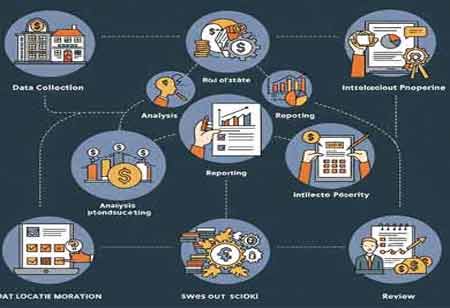CLOSE
Specials
- RegTech Europe
- Financial Risk Management APAC
- Investment Banking APAC
- Corporate Advisory APAC
- Regtech APAC
- Escrow Services
- Digital Banking Latam
- Trading Solutions APAC
- Treasury Management Europe
- CPA Firms Canada
- Financial Risk Management Europe
- Mortgage Broker
- Financial Licensing Europe
- RIA Advisory Europe
- FinTech Canada
- Financial Asset Management APAC
- Investment Banking Canada
- Payment Solution
- Lending Mangment Latam
- Payment Solution Europe
- Broker Dealer Firms Canada
- Alternative Investments Canada
- Financial Fraud
- Investment Management Latam
- Financial Health Europe
- Lending mangment
- Financial Marketing
- Proprietary Trading Europe
- Wealth Management
- FinTech
- Financial Brokerage Firm APAC
- Investment Advisory Europe
- Investment Advisory APAC
- Wealth Management MENA
- Claim Adjusting
- Claim Adjusting APAC
- Mergers and Acquisitions Consulting APAC
- Equipment Financing
- CPA Firms
- Mergers and Acquisitions Consulting Canada
- Investment Services
- Valuation Services Canada
- Wealth Management APAC
- Broker Dealer Firms
- Debt Collection Agencies
- Mergers and Acquisitions Consulting
- FinTech Europe
- Fintech Latam
- Financial Planning / Retirement
- Investment Management
- Financial Compliance
- Digital Banking Europe
- CFO Services
- Debt Collection Agencies Europe
- Wealth Management Europe
- Mergers and Acquisitions Consulting Europe
- Financial Restructuring Europe
- Financial Portfolio Management Canada
- Business Loan
- Payment and Card Latam
- Wealth Management Latam
- Mergers and Acquisitions Consulting Latam
- Tax Advisory Canada
- Trading Solutions Europe
- Alternative Investments
- Digital Insurance Europe
- Investment Services Latam
Weekly Brief
×Be first to read the latest tech news, Industry Leader's Insights, and CIO interviews of medium and large enterprises exclusively from Financial Services Review
Thank you for Subscribing to Financial Services Review Weekly Brief
Investment Opportunities in a Changing World
The global economic landscape undergoes continuous change, influenced by various factors such as geopolitical events and technological advancements.

By
Financial Services Review | Monday, March 25, 2024
Stay ahead of the industry with exclusive feature stories on the top companies, expert insights and the latest news delivered straight to your inbox. Subscribe today.
The global economy constantly evolves, with investment opportunities in technology, e-commerce, and digital services shaped by geopolitical events, demographic shifts, renewable energy sources, trade dynamics, and consumer behaviour.
FREMONT, CA: The global economic landscape undergoes continuous change, influenced by various factors such as geopolitical events and technological advancements. These fluctuations significantly impact financial markets, creating new investment opportunities while closing others. For investors, a deep understanding of these global economic trends is essential for making well-informed decisions and optimising returns.
The Impact of Technology and the Digital Revolution
In recent decades, the digital age has profoundly reshaped the world economy. Companies like Apple, Amazon, and Alphabet have experienced remarkable growth, presenting extensive investment prospects in the technology, e-commerce, and digital services sectors.
Venture capitalists now consider startups specialising in artificial intelligence, blockchain, and the Internet of Things (IoT) lucrative investment options. The rapid adoption of these technologies underscores the potential for companies leading these innovations to deliver promising returns.
Emerging Markets Growth
As emerging economies transition to major global players, they present significant investment opportunities. The rapid expansion of the middle class and increased consumer spending in sectors such as infrastructure, real estate, retail, and finance are driving growth in these markets.
Demographic Shifts
Global demographics are undergoing substantial changes, with some regions experiencing rapid ageing while others boast youthful populations. Countries like Germany are addressing challenges related to an ageing population, including implications for pension funds, healthcare systems, and real estate markets. Conversely, regions in Africa and parts of Asia with younger demographics offer opportunities in education, job training, and entertainment sectors.
Environmental Concerns and Green Energy
The global focus on sustainable practices and green energy is intensifying due to the undeniable reality of climate change. The shift from fossil fuels to renewable sources like solar and wind energy creates substantial investment potential. Companies involved in electric vehicles, sustainable agriculture, and green technologies are attracting increasing attention from investors.
Global Trade Dynamics
In recent years, global trade dynamics have changed, including rising protectionism and trade conflicts. These developments impact global supply chains, prompting companies to diversify their operations. While initially disruptive, these shifts create investment opportunities in previously overlooked regions or sectors, making it crucial for investors to understand and adapt to changing trade patterns.
Financial Innovations
The financial landscape has evolved significantly with the emergence of fintech companies, democratising financial services. Innovations such as peer-to-peer lending, cryptocurrencies, and robo-advisors are reshaping investment opportunities. Traditional banks face competition from agile startups offering lucrative investment avenues, highlighting the need for investors to stay informed about evolving financial trends.
Changes in Consumer Behavior
The digital age has ushered in a new era of consumer behaviour characterised by environmental consciousness, digital proficiency, and a preference for experiences over material possessions. This shift has created opportunities in sectors such as eco-tourism, digital experiences, and sustainable consumer goods, aligning with modern consumer preferences.

Copyright © 2025 Financial Services Review. All rights reserved





